The Catalyst Killing - [17]
Marie Morgenstierne was, in Miriam Filtvedt Bentsen’s opinion, generally careful and considerate in what she said about others. She had, however, on one occasion after a couple of glasses of wine, intimated that she suspected that one of the other members of the group knew something about Falko’s disappearance. But when Miriam tried to follow this up, Marie had swiftly backtracked, and neither of them ever mentioned it again.
All contact was broken after spring 1969. Miriam knew nothing about what Marie had done in the intervening eighteen months, and she therefore feared that she would not be of much help to the murder investigation.
She looked a little sad when she said this; the case had obviously piqued her curiosity. I personally had absolutely no wish to finish our conversation, and so asked how Miriam had interpreted the events leading up to her leaving the group. She looked at me and asked what importance that might have to me or the murder investigation, but then jokingly added that she no doubt remembered things very differently from the rest of the group.
As she remembered it, Anders Pettersen had held one of his ‘long, passionate and nebulous’ lectures. His argument, in short, was that everything the USA did was wrong and that President Nixon’s hands were stained with human blood. China, on the other hand, was the new Soviet and a land of opportunity, and Mao was the greatest leader of our time. The SPP, with its half-hearted support, had proved to be a class traitor both in terms of the working class in Norway and the hundreds of millions of liberated workers in the Soviet and China. Anders’ conclusion, therefore – and he believed that Falko would have wanted the same – was that the group should split from the SPP.
As she remembered it, Miriam herself had replied that politics were more about making things right than being right. They should therefore join with the SPP and take part in the election campaign rather than splintering into an unaffiliated group which was not even a party, and which had no realistic chance of winning representation in that year’s election. Then she had added that there should be no doubt about the democratic stance of Norwegian socialists, and that if one used one’s eyes, it was easy to see that China and the Soviet were one-party systems and that both Mao and Brezhnev also had blood on their hands. She admitted that this was somewhat provocative, but that it was undeniably both true and important. I had no problem in agreeing with her.
Miriam Filtvedt Bentsen gave a crooked smile and assured me that she had not expected to win over the majority of the group. She had nurtured a faint hope that Marie Morgenstierne might come with her, but was not surprised when she left alone. And she had never regretted her decision to leave. She had come into contact with the group through her anti-Vietnam activities, and still agreed with them on that point. But she could not follow the group in their support of dictatorship, and had become increasingly provoked by their simplifications and partiality following the disappearance of Falko Reinhardt.
As far as surveillance was concerned, Miriam Filtvedt Bentsen thought it was overwhelmingly likely that ‘the group in general and Falko in particular’ were being watched, even though she had no direct evidence of this. In response to my question as to whether she thought there had been a mole in the group, she replied that she found that hard to believe and therefore did not want to speculate who it might have been if that were the case.
The temptation to ask if she was aware that the others suspected her of being the police security service’s informant was too great.
I was interested to see whether this might lead to a sudden outburst of emotion. But it would obviously take a lot more than accusations of treachery to knock Miriam Filtvedt Bentsen off balance. She leaned forward a touch and answered that she had not heard anything like that before, but that she should perhaps not be surprised. Then she asked, with noticeable curiosity, who had said that – only to answer her own question by saying that it was no doubt Anders or Trond, and that it really didn’t matter anyway. The accusation was, in her own words, absurd. For the sake of formality, she added that she had of course never had any form of contact with the intelligence services, and would not have answered any questions about the group, or anything else for that matter, had they contacted her.
My instinct was to believe her, and in any case, I saw no reason to pursue the idea any further here and now. So I turned instead to the stormy night in Valdres when Falko Reinhardt had disappeared, and asked whether any explanation had ever occurred to her.
Miriam Filtvedt Bentsen answered that she had of course given it much thought, but much to her frustration had not come up with any answers. She had herself also been awake for a long time that night, and had heard nothing. She had gone to sleep around midnight, so trusted her ‘roommate’ Kristine Larsen’s statement that Falko had not been out in the hall at any point.
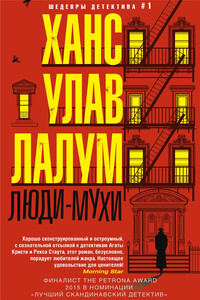
Убит бывший лидер норвежского Сопротивления и бывший член кабинета министров Харальд Олесен. Его тело обнаружено в запертой квартире, следов взлома нет, орудие убийства отсутствует. На звук выстрела к двери Олесена сбежались все соседи, но никого не увидели. Инспектор уголовного розыска Колбьёрн Кристиансен считает, что убийство, скорее всего, совершил кто-то из них. Более того, он полагает, что их показания лживы.
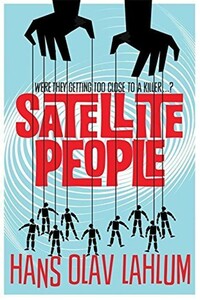
A gripping, evocative, and ingenious mystery which pays homage to Agatha Christie, Satellite People is the second Norwegian mystery in Hans Olav Lahlum's series. Oslo, 1969: When a wealthy man collapses and dies during a dinner party, Norwegian Police Inspector Kolbjorn Kristiansen, known as K2, is left shaken. For the victim, Magdalon Schelderup, a multimillionaire businessman and former resistance fighter, had contacted him only the day before, fearing for his life. It soon becomes clear that every one of Schelderup's 10 dinner guests is a suspect in the case.
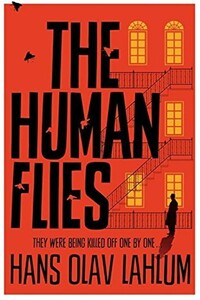
Oslo, 1968: ambitious young detective Inspector Kolbjorn Kristiansen is called to an apartment block, where a man has been found murdered. The victim, Harald Olesen, was a legendary hero of the Resistance during the Nazi occupation, and at first it is difficult to imagine who could have wanted him dead. But as Detective Inspector Kolbjorn Kristiansen (known as K2) begins to investigate, it seems clear that the murderer could only be one of Olesen's fellow tenants in the building. Soon, with the help of Patricia – a brilliant young woman confined to a wheelchair following a terrible accident – K2 will begin to untangle the web of lies surrounding Olesen's neighbors; each of whom, it seems, had their own reasons for wanting Olesen dead.
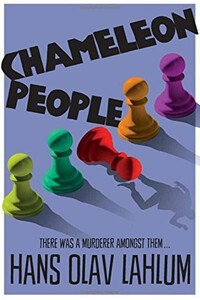
From the international bestselling author, Hans Olav Lahlum, comes Chameleon People, the fourth murder mystery in the K2 and Patricia series.1972. On a cold March morning the weekend peace is broken when a frantic young cyclist rings on Inspector Kolbjorn 'K2' Kristiansen's doorbell, desperate to speak to the detective.Compelled to help, K2 lets the boy inside, only to discover that he is being pursued by K2's colleagues in the Oslo police. A bloody knife is quickly found in the young man's pocket: a knife that matches the stab wounds of a politician murdered just a few streets away.The evidence seems clear-cut, and the arrest couldn't be easier.
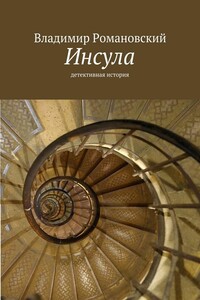
Детективная история, произошедшая в Санкт-Петербурге. Обычные люди в необычных обстоятельствах. Любовь, ненависть, жадность, драки и власть.
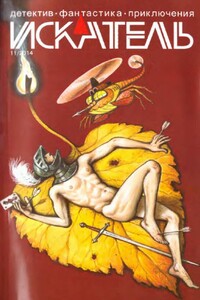
«ИСКАТЕЛЬ» — советский и российский литературный альманах. Издаётся с 1961 года. Публикует фантастические, приключенческие, детективные, военно-патриотические произведения, научно-популярные очерки и статьи. В 1961–1996 годах — литературное приложение к журналу «Вокруг света», с 1996 года — независимое издание.В 1961–1996 годах выходил шесть раз в год, в 1997–2002 годах — ежемесячно; с 2003 года выходит непериодически.Содержание:Анатолий Королев ПОЛИЦЕЙСКИЙ (повесть)Олег Быстров УКРАДИ МОЮ ЖИЗНЬ (окончание) (повесть)Владимир Лебедев ГОСТИ ИЗ НИОТКУДА.
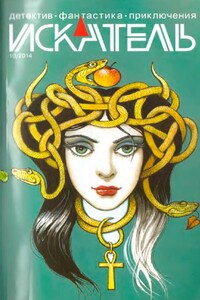
«ИСКАТЕЛЬ» — советский и российский литературный альманах. Издается с 1961 года. Публикует фантастические, приключенческие, детективные, военно-патриотические произведения, научно-популярные очерки и статьи. В 1961–1996 годах — литературное приложение к журналу «Вокруг света», с 1996 года — независимое издание.В 1961–1996 годах выходил шесть раз в год, в 1997–2002 годах — ежемесячно; с 2003 года выходит непериодически.Содержание:Олег Быстров УКРАДИ МОЮ ЖИЗНЬ (повесть);Петр Любестовский КЛЕТКА ДЛЯ НУТРИИ (повесть)
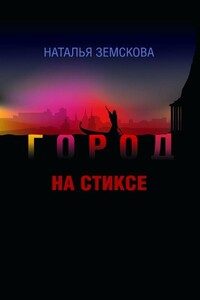
Наталья Земскова — журналист, театральный критик. В 2010 г. в издательстве «Астрель» (Санкт-Петербург) вышел её роман «Детородный возраст», который выдержал несколько переизданий. Остросюжетный роман «Город на Стиксе» — вторая книга писательницы. Молодая героиня, мечтает выйти замуж и уехать из забитого новостройками областного центра. Но вот у неё на глазах оживают тайны и легенды большого губернского города в центре России, судьбы талантливых людей, живущих рядом с нею. Роман «Город на Стиксе» — о выборе художника — провинция или столица? О том, чем рано или поздно приходится расплачиваться современному человеку, не верящему ни в Бога, ни в черта, а только в свой дар — за каждый неверный шаг.
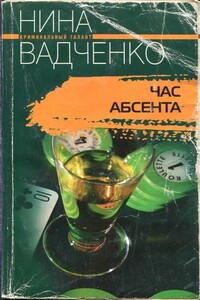
А ведь все так невинно начиналось! Четыре подружки коротали вечерок с бутылочкой «зеленого дьявола» и вели милую дамскую беседу о том… как бы им «грамотно» отправить на тот свет ненавистного шефа. Почему бы не помечтать о приятном в теплой дружеской компании? Все бы ничего, да только шефа вскоре действительно нашли мертвым, к тому же кто-то снял на видео посиделки четырех любительниц абсента. Впрочем, они и сами друг друга теперь подозревают. И распутать этот клубок противоречий по силам только их старой знакомой, неугомонной журналистке Инне Пономаренко…
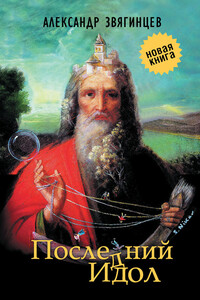
В сборник «Последний идол» вошли произведения Александра Звягинцева разных лет и разных жанров. Они объединены общей темой исторической памяти и личной ответственности человека в схватке со злом, которое порой предстает в самых неожиданных обличиях. Публикуются рассказы из циклов о делах следователей Багринцева и Северина, прокуроров Ольгина и Шип — уже известных читателям по сборнику Звягинцева «Кто-то из вас должен умереть!» (2012). Впервые увидит свет пьеса «Последний идол», а также цикл очерков писателя о событиях вокруг значительных фигур общественной и политической жизни России XIX–XX веков — от Петра Столыпина до Солженицына, от Александра Керенского до Льва Шейнина.